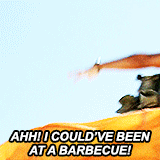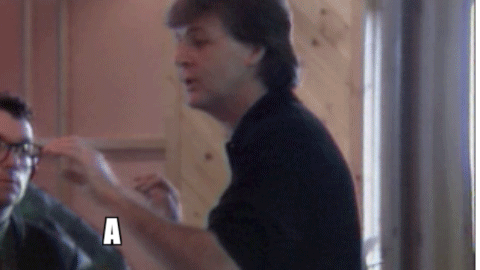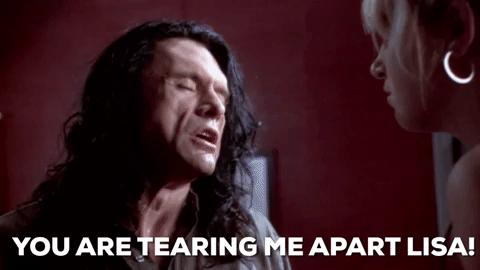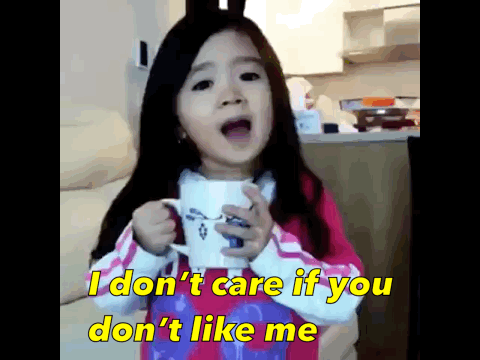Rules of grammar: you learned them in school, but have since completely forgotten about them. As texting and texting shortcuts became more popular, grammar became less relevant. People stopped caring about the rules, and started saying whatever they felt was most convenient.
Unfortunately, the shortcuts people use have lead to misunderstandings about the proper use of certain words and phrases. So, here are some quick clarifications about common mistakes that most people make every day.
1. You're vs. your.

"You're" is a contraction of the words "you" and "are," while "your" indicates possession.
Example: You're going to get your phone fixed.
In the example, you are going to do something (get your phone fixed), and the phone belongs to you (making it your phone).
2. There vs. their vs. they're.
"There" indicates location, "their" indicated possession, and "they're" is a contraction of the words "they" and "are."
Example: They're going to get their phones fixed at the store over there.
In this sentence, the group of people (they) ARE going (they're) to get their phones fixed (the phones belong to them) at a store at over there (specifying the location).
3. Than vs. then.
"Than" is used to make comparisons while "then" usually signifies timing.
Example: Back then, it was harder to get a phone fixed than it is now.
In the example, "then" refers to a time that has passed, and "than" compares the current status to what is used to be.
4. "Affect" vs. "effect."
In most cases, "effect" is a noun and "affect" is a verb.
Example: The effects of smoking can really affect the people surrounding the smoker.
In this example, the "effects" are the results and consequences of smoking (which are nouns) and "affect" is what smoking does to bystanders (a verb).
5. It's could HAVE not could of.

Whether it's after "could," "should" or "would," the word "of" is never correct. Because of their contractions with "have" (could've, should've, and would've), people mistake the words that are being combined.
Example: She could/should/would have stopped smoking, but she decided she didn't want to.
In the above example, no matter which past modal you use, "have" is the word that follows.
If you were to use the contracted forms of the words (could've, should've, would've), when spoken, it can sound like "could of," "should of," and "would of," which is where the confusion usually comes from. But I promise, it's "have."
7. Accept vs. except.

The word "accept" is when you receive or welcome something while the world "except" is used to exclude something.
Example: The manager accepted all of the applicants except for one girl.
In the example, the manager took (accepted) all of the applicants, but excluded one girl (meaning he excepted her).
8. It's vs. its.

The word "it's" is a contraction of "it" and "is," and the word "its" (without the apostrophe) indicates possession.
Example: It's really sad that the team didn't win its game.
If you get rid of "It's," you can substitute "it is," which confirms that the apostrophe was used correctly to form the contraction. "Its" then suggests possession, as the game belonged to the team.
This can be confusing since normally when you have a word with " 's " after it, it signifies possession. However with "it," it is actually the opposite.
9. To vs. too vs. two.

"To" is a preposition, "too" means "also," and "two" is the number 2.
Example: She is going to quit smoking in two days too.
In the example, "to" comes before an infinitive, she is going to quit in not 1 but 2 days ("two"), and she is going to quit as well as the other person ("too").
10. Apart vs. a part.

The word "apart" is an adverb that means separate, while a "part" is a noun meaning a piece of something. Many people say they are "apart of a group" when it should really be "a part of a group."
Example: I am so lucky to be a part of a family that rarely spends time apart.
In the example, the person speaking is excited about being in a family ("a part" of a family) that rarely spends time away from each other ("apart").
11. Farther vs. further.
Simply put, "farther" is used for literal distance and "further" is used metaphorically, and can also be used as a verb.
Example: "Since I broke my leg, I don't know how much farther I should walk, as I don't know if it will further the pain."
In the sentence, the person doesn't know how much "farther" (more of a distance) he or she should walk because the person is worried he or she is going to make the pain even worse ("further" the pain).
Happy speaking properly!




















